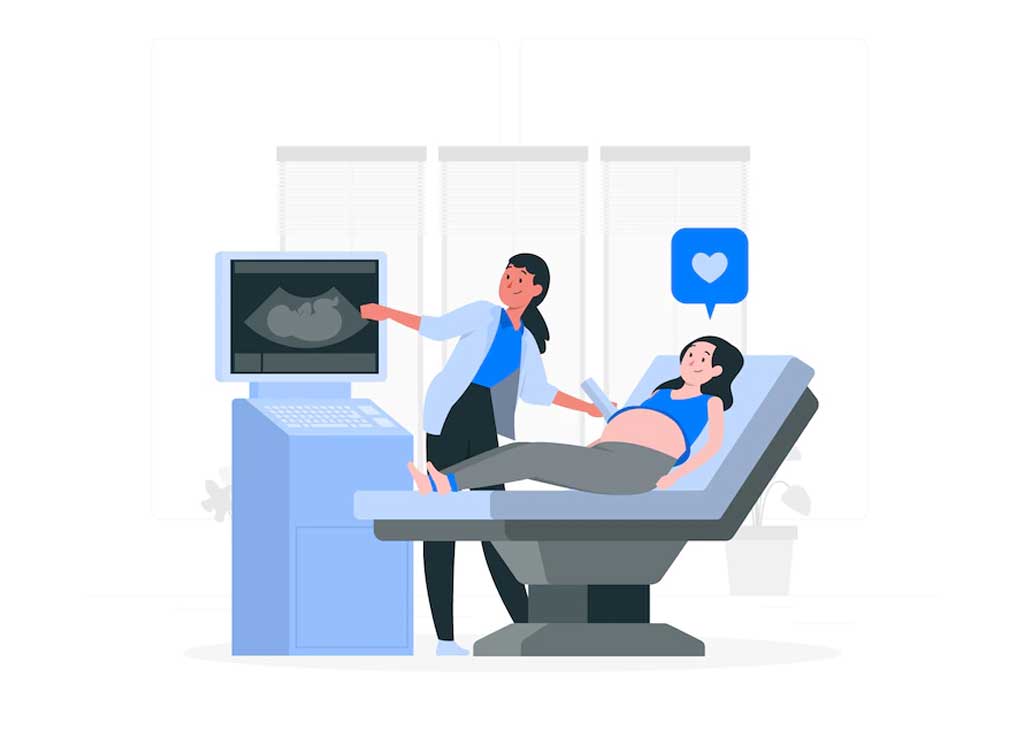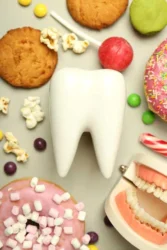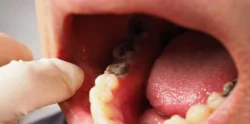Generally, women get scared when they notice a difference in their bodies, perhaps regarding their ovulation, period, and pregnancy. When it comes to pregnancy, women may be more attentive because they wouldn’t want to hurt their babies. As an expectant mother, it is natural to be cautious and avoid some things others have testified have adverse effects. However, making informed decisions and discerning the truths from the misconceptions is important. So, we will provide clarity on dental procedures women can indulge in during pregnancy.
Highlights
Misconceptions and Truths Regarding Dental Visits During Pregnancy
Misconception: Expectant mothers should avoid dental procedures
Truth: Routine dental visits are an investment in good health. Expectant mothers have no reason to avoid routine dental procedures because doing so could adversely affect them and their babies. A dental problem may metastasize and ruin the health of the mother and the child by extension.
Notwithstanding, it is best to postpone some procedures for the middle trimester or after the pregnancy, especially if it will require a local anesthetic. This is because the early weeks of the pregnancy are a vulnerable period, and a wrong move could fatally hurt the baby. Ensure to make your dentist know you are pregnant.
Misconception: There is no connection between the oral health of an expectant mother and the health of her child
Truth: Women are more prone to developing dental conditions, including gum disease (pregnancy gingivitis) and inflammation of the gum tissue (pregnancy tumor). It is because the gum is hypersensitive during pregnancy. If a woman develops periodontitis, it could affect the pregnancy, causing the mother to give birth prematurely and the child to be of low weight.
Also, because of pregnant women’s cravings, they may consume many cavity-inducing foods such as sugary foods and ones high in carbs. It could lead to the development of cavities due to the pregnancy, and the mother may pass it down to the child. When cavity-causing bacteria are transferred to the child, and they indulge in more sugar, they could also develop cavities at a tender age.
Misconception: Dental x-rays during pregnancy is risky
Truth: Many may feel that an expectant mother getting a dental x-ray is risky or harmful because of the radiation. However, the radiation in dental x-rays is one of the lowest, so it hardly affects the patient. Still, the dentists take extra precautions to keep the patient completely safe. Dental x-rays are vital because they are sometimes needed to detect complicated dental problems.
Misconception: Pregnancy causes loss of calcium in teeth
Truth: While you don’t lose calcium during pregnancy, eating foods such as dairy that contain this nutrient during your pregnancy is giving yourself and your baby a treat. It is because calcium keeps your bone mass in check and helps you give birth to a baby with strong bones. An expectant mother’s recommended daily calcium intake is 1200-1500 mg.
Misconception: Vomiting during pregnancy doesn’t harm the teeth
Truth: Generally, vomiting often can erode your enamel because of the acid content of the vomit. It is no different with morning sickness. When pregnant women vomit frequently, it starts to weaken the enamel. So, it is essential to visit your dentist because he could provide a way to mitigate the effect of the acid on your teeth.
How Dental Visits During Pregnancy Should Be
We have established that dental visits during pregnancy are crucial for the sake of the mother and baby. However, you should know that dental visits before and after the pregnancy are equally as important. The hormonal changes leave the women very vulnerable to many diseases.
Pre-pregnancy
As a woman expecting a baby, you should prepare by indulging in good oral care before the pregnancy. You need a complete and thorough dental exam because your mouth will be extra sensitive to external elements during pregnancy. It helps to get any necessary procedure that may not be able to be done during the pregnancy out of the way. The best way to be prepared is to regularly see your dentist for checkups and cleanings.
Gestation
You have to be thorough with your dental visits while you’re pregnant. There are several measures to take, but they are well worth it for the sake of the mother and the baby. Some of them are
- Your dentist should know that you are pregnant. Informing your dentist of your pregnancy will aid them in streamlining the dental procedures you can undergo and the appropriate medications for you. You can still engage in standard checkups and urgent procedures if all parties are adequately informed.
- Let your dentist know all the instructions and medications prescribed by your doctor. It is helpful to avoid complications.
- You should take your standard dental examinations more seriously because hormonal alterations can make you more susceptible to gum infections and diseases. If left unattended, it can affect your baby’s health.
- You may need an x-ray during gestation, do not be deterred by the misconceptions you have heard. The dentist will ensure the entire process is safe for you and your baby.
- Notwithstanding how tired you feel, maintain good dental hygiene by brushing, flossing, and eating healthy to reduce your chances of developing dental issues. If you suffer from morning sickness, always rinse your mouth after vomiting.
Post-pregnancy
You should make a dental appointment after giving birth to your child. It is the right time to address dental problems that can’t be treated during pregnancy. Visits to the dentist are also crucial during the breastfeeding stage; ensure not to neglect your oral and general health as you care for your baby.
Conclusion
The effects of pregnancy hormones, including bleeding, dry mouth, and vomiting in a woman during her pregnancy, can be quite severe, making her vulnerable to several dental conditions. So, the best way to avoid these conditions during this period is to visit your dentist regularly, do your best to maintain adequate oral care, eat healthy foods, and avoid sugary foods, wine, and tobacco.







